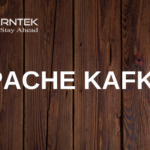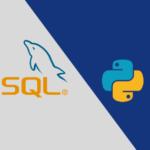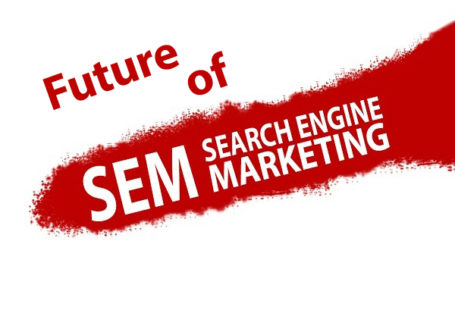What is Digital Marketing?
Very few people do a good job of defining digital marketing in a simple form. Most definitions complicate the term without any necessity. Digital marketing is not a new concept. It arrived on the scene as soon as electronic devices and gadgets started becoming commonplace in society. There is a misconception that digital marketing has only to with content marketing and social media. While these are part of digital marketing, the subject itself is more all-encompassing than just that! In essence, digital marketing can be defined as any type of marketing for products and services that are done via electronic devices. Contrary to popular belief, digital marketing can take place both online as well as offline, although the majority of a digital marketer’s time is spent focusing on online marketing tactics. In order to be able to come up with an effective marketing strategy, one must be proficient in both the offline and online forms of digital marketing.
Why Does Digital Marketing Matter?
Because of the sheer amount of time that we collectively as humans spend every day on our various electronic gadgets, we are deeply impacted by it. It is also one of the most efficient ways in the 21st century to get people to pay attention to your products and services. It is estimated that the average American spends around 11 hours every day using electronic gadgets. When it is a known fact that humans spend close to half their day on their devices, not to mention the fact they most of the time left is spent on sleeping, then there is no denying that the best way to market your product or service in the modern day, is through digital marketing.
What is Digital Marketing Strategy?
Although this list of digital marketing strategies is constantly evolving with the constant introduction of new mediums, you will find that the strategies highlighted below are staples in the field of digital marketing.
Pay Per Click Advertising
PPC or pay per click management is a form of advertising that is used to refer to any type of digital marketing in which a user is paid to click on an ad. Google AdWords, which is a form of PPC advertising is commonly referred to as “paid search advertising”, while Facebook Ads are also another variant called “paid social media advertising”.
Paid Search Advertising
Running text ads on the SERPS (Search Engine Results Pages) of popular search engines such as Google, Bing, and Yahoo is referred to as Paid Search Advertising. This is one of the best ways to focus your attention on potential customers who are actively scouring the internet for products or services such as yours.
Search Engine Optimization (SEO)
For those who are on a budget and don’t really want to splurge on SERPs, SEO or Search Engine Optimization is the way to go! One can use SEO to get their pages, products, and post to rank much higher, completely organically. There is no necessity for them to pay for every ad click. Although it takes some time to master the art of SEO and get your pages to rank higher so that they are more likely to be viewed, it is the best option for those on a tight budget!
Paid Social Media Advertisement
Almost all social media platforms allow paid advertisements. Using popular social media channels such as Facebook, Instagram, Twitter, LinkedIn, Pinterest and Snapchat to run paid advertisements is an excellent way of building awareness among audiences that otherwise would never have come across your business.
Social Media Marketing
Much like Search Engine Optimization, social media marketing is also completely free and for those who are on a budget! Similar to SEO, social media marketing also takes time to achieve results. However, with persistence and some analytical thinking, one can master the art of social media marketing in no time!
Conversion Rate Optimization (CRO)
If you want to constantly improve the online user experience of your customers, the CRO or Conversion rate optimization is the key. Businesses all across the globe use CRO effectively in order to achieve more conversions from either leads, calls, sales, chats, etc, from the existing traffic on their websites.
Content Marketing
Although content marketing is a broad term, it covers any part of digital marketing that focusses on efficient use of content assets such as blog posts, infographics, video content, eBooks, and lots more, in order to build awareness of a brand or drive conversions.
Native Advertising
If you’ve ever clicked on a link of a suggested article at the end of another article, then you have been susceptible to native advertising. Using content to get click on your other products and services is referred to as native advertising. Native advertising is often mingled with non-paid content recommendations, which it difficult to spot!
Email Marketing
Perhaps the oldest online marketing form to still exist, email marketing is still considered a powerful and highly effective digital marketing strategy, today. Most digital marketing experts these days employ this strategy to advertise special discounts and deals, to highlight new content (in connection with content marketing) or to spread awareness about an upcoming event.
Affiliate Marketing
In essence, affiliate marketing is paying a third party, which can be either an individual or a business, to promote your products and services on their own website, social media pages or any other online medium.
With plenty of digital marketing strategies available, it comes down to the digital marketer responsible, to choose with these strategies to adapt and focus your attention on. This should be done according to the products and services that you are offering as well as the audience that you are trying to attract!
Traditional marketing vs Digital marketing?
Traditional marketing includes conventional forms of advertising such as business cards, ads in print media (newspapers, magazines, periodicals, etc), posters, television/radio commercials, brochures, billboards, and a lot more. Any form of marketing that does not employ digital means in some way or another, can be categorized under traditional marketing. Digital marketing is a medium that continues to evolve at a rapid rate, owing to the incessant advances in technology. The use of the website, social media, Youtube videos, banner advertisements, etc, all fall under digital marketing.
Digital marketing is different from traditional marketing in that it is an “inbound marketing” strategy, meaning its main objective is for people to find you. You as a business post an ad, and potential customers seek your products and services out after performing a basic search on the internet. They may also have found about your business through a blog, video, or article that you might have published. Digital marketing is all about creating an online presence amongst an audience of potential customers and earning their trust and admiration for your brand.
A major advantage of digital marketing is that the results of your strategies are easily measurable thanks to modern statistics and analytical tools. Digital marketing also helps a business address a far bigger and more wide-spread audience than traditional marketing would have. Another advantage is that digital marketing is a more personal means of advertising your product and service as you get to address and influence individuals directly. Overall, there can be no doubts that digital marketing is a far superior means of advertising one’s products and services in the 21st century than traditional marketing methods.
What Are The Various Types Of Digital Marketing?
1. Search Engine Optimization
Search Engine Optimization is a type of digital marketing that helps you grow your online visibility in organic search engine results which doesn’t require any spending on your part.
SEO comprised of a number of factors such as keywords embedded in your content links to your own website, on-page/off-page SEO, and a whole lot more! SEO trends are constantly changing as algorithms evolve according to the changes in human sentiment. SEO is not about one thing. It is about constantly adapting to change the best way possible.
2. Search Engine Marketing
One can make up for all the areas that Search Engine Optimization lacks in, with Search Engine Marketing or SEM. Using SEM, one can purchase ad spaces on a user’s SERP, meaning that they are more likely to view these advertisements than high ranking search engine results themselves. After Google Adwords, the most common paid search engine platform is Bing Ads.
3. Social Media Marketing
It should be clear by now, that Social Media Marketing is an integral part of a digital marketing strategy. There’s no better way to derive increased and prolonged exposure than with an effective social media marketing strategy. You will not only be able to gain valuable feedback allowing you to refine your products and services, but also get to know what your key demographic is. This is crucial when it comes to focus your advertising efforts on the most receptive members of your audience.
4. Content Marketing
The practice of delivering high-quality content to your users that help in generating more leads and sales is referred to as content marketing. This content may exist anywhere and in any form, on the internet. It may be a blog post, a tweet, an email, a webpage, a video on Youtube, etc. Exceptionally written content that is highly informational, easy to read and simple enough to understand quickly, is a key ingredient in generating revenue online.
5. Influencer Marketing
This variety of digital marketing involves making use of a person’s online fan-base, influence, and celebrity to advertise your own products and services. This is similar to sports sponsorship’s, where are famous sportsperson is paid by a sporting goods/shoe brand to use their products. By choosing to endorse a particular brand, that sports personality is, in turn, influencing the millions of people who call themselves his fans or followers.
6. Viral Marketing
Viral marketing involves posting something that is currently trending, is funny or incredibly strange enough, that it attracts attention in the form of shares, likes, and comments. This increased attention on your brand can them be reverted to your own products and services. Viral marketing is basically a form of baiting. But humans, unlike fish, are psychologically complex beings, and so the bait has to be extraordinary enough to attract attention.
7. Offline Digital Marketing
It is worth noting that not your entire digital marketing strategy focusses on the online aspect. The offline aspect of digital marketing which comprises of hybrid (a mixture of traditional and digital marketing techniques) marketing strategies including radio marketing, television marketing, phone advertisements, banners, etc, is also equally important for a comprehensive and all-around digital marketing perspective!
The Many Benefits of digital marketing
The following are the various ways in which inculcating and maintaining a strong online presence will help you –
● In creating increased awareness and promoting engagement
● In converting first time customer to regulars who cherish your products and rely on your services
● In getting the word about your amazing products and services spreading either through word of mouth or through social sharing
● In making the entire process of selection and purchasing as easy as possible for customers.






